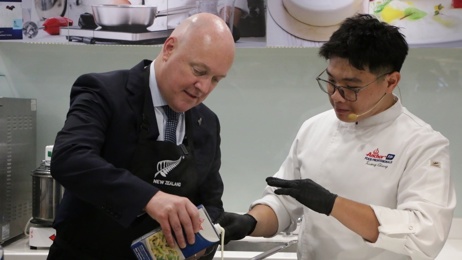
A complaint against a column by Newstalk ZB's senior political correspondent Barry Soper has been upheld by the NZ Media Council, on the grounds that it contained a serious inaccuracy and attempts to correct it were inadequate.
The first four paragraphs of the article, titled How did Tory Whanau get the Wellington mayoralty? published on 23 October 2024, suggested Ms Whanau's election was due to the Single Transferable Vote (STV) system. Thomas Nash complained the assertion was factually incorrect. Ms Whanau had received the largest number of first-preference votes, making the claim the STV system was pivotal to her win misleading.
The day after the article was published, the headline was changed to Barry Soper: Inconsistency the hallmark of Wellington Mayor Tory Whanau’s leadership, which was the same as the heading in the NZ Herald, where the column also appeared. Twelve days after the article was published, the first four paragraphs addressing the STV claim were removed. A correction was added, saying an earlier version “inferred” Ms Whanau relied on the STV system for her win, but that she did receive the largest number of first preference votes. Mr Nash argued the correction did not fully address the issue. It should be crystal clear that Ms Whanau’s win had nothing to do with the STV process, Mr Nash said.
Newstalk ZB’s parent company NZME said both publishers had added a correction to the beginning of the column and the headline change reflected that the purpose of the column was to convey Mr Soper’s perspective on Ms Whanau’s suitability as mayor.
The Media Council found that the complaint should have been considered with more urgency and changes made earlier. It was an error to assert, as the article effectively did, that Ms Whanau's election was due to the Single Transferable Vote (STV) system, when she had received the largest number of first-preference votes. The error was serious and cast doubt on the legitimacy of Ms Whanau’s election win. The incorrect claim remained live for a fortnight. A vastly larger audience would have seen the false claim than saw the correction. The correction itself was also inadequate, the Media Council found, being confusing rather than simply stating that the original claim was incorrect.
The full Media Council ruling can be found here.
Take your Radio, Podcasts and Music with you








